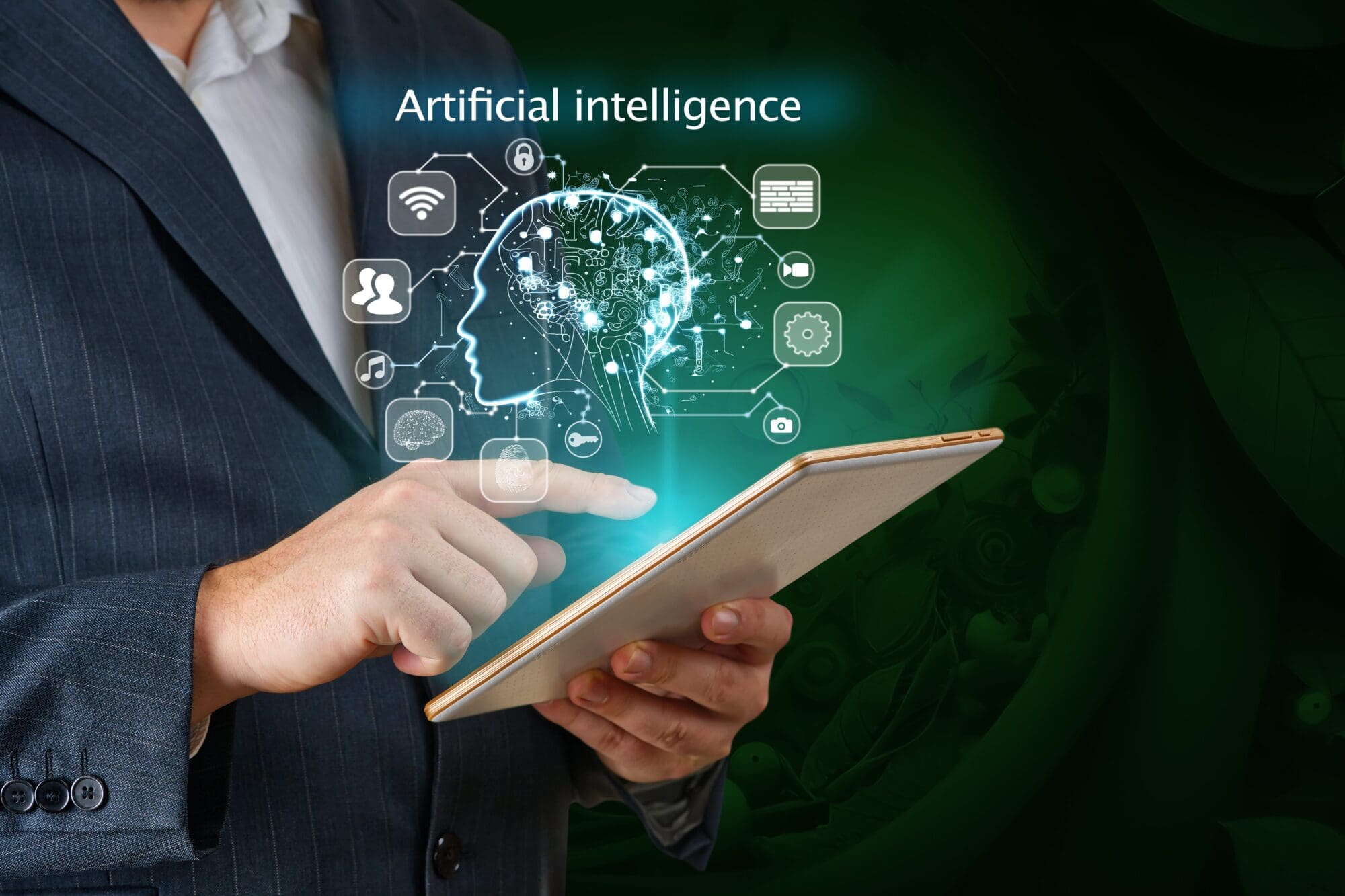Introduction
In the ever-evolving world of marketing, the digital realm has emerged as a powerhouse, reshaping the way businesses connect with their audiences. From the early days of simple banner ads to the sophisticated campaigns of today, digital marketing has undergone a significant transformation. Central to this metamorphosis is the rise of Artificial Intelligence (AI). As we stand at the intersection of technology and marketing, AI has not only become an integral part of the digital landscape but also a game-changer, offering unprecedented capabilities and opportunities. This article delves deep into the role of AI in digital marketing, exploring its myriad benefits and the challenges it brings to the fore.
The Growing Importance of AI in Digital Marketing
Historically, marketing was a game of intuition, creativity, and understanding the human psyche. Brands relied on traditional mediums like television, radio, and print to reach their audiences. These methods, while effective in their time, lacked the precision and personalization that today’s digital platforms offer. As the world transitioned into the digital age, so did marketing. Websites, social media, and email campaigns became the new norm, providing businesses with a more direct line to their customers.
The digital revolution brought with it an avalanche of data. Every click, like, share, and comment became a data point, waiting to be analyzed. This shift towards data-driven strategies marked a significant departure from the earlier, more intuitive approaches. Instead of casting a wide net and hoping for the best, marketers could now target specific demographics, track user behavior, and adjust their strategies in real-time. The granularity of insights available in the digital realm was unparalleled, and it was clear that data was the new gold.
Enter Artificial Intelligence. With the sheer volume of data generated every second, it became humanly impossible to process, analyze, and derive meaningful insights from it. AI, with its ability to handle vast amounts of data and learn from it, emerged as the perfect solution. Machine learning algorithms could predict user behavior, automate repetitive tasks, and even craft personalized marketing messages. The synergy between AI and digital marketing was evident. Where data provided the raw material, AI was the craftsman, molding it into actionable strategies.
Moreover, AI’s predictive capabilities meant that businesses could anticipate market trends, customer preferences, and potential challenges. This proactive approach, powered by AI, allowed companies to stay one step ahead of their competitors and resonate more deeply with their target audience.
In essence, the journey from traditional marketing to digital was not just a change in platforms but a fundamental shift in approach. The emphasis moved from broad strokes to fine-tuned strategies, from gut feelings to data-driven decisions. And at the heart of this transformation was AI, amplifying the potential of digital marketing and setting the stage for a new era of innovation.
Benefits of AI in Digital Marketing
1. Personalization at Scale
In the age of information overload, personalization has become the key to standing out. Consumers are no longer satisfied with generic messages; they crave content that resonates with their unique preferences and needs. AI excels in this domain. By analyzing vast datasets, AI can segment audiences based on their behavior, interests, and demographics. This enables businesses to craft tailored marketing messages that speak directly to the individual, enhancing engagement and conversion rates. For instance, streaming platforms like Netflix and Spotify use AI to recommend shows and music based on users’ viewing and listening habits, creating a personalized experience that keeps subscribers hooked.
2. Predictive Analysis
Predictive analysis is the crystal ball of the digital marketing world. By analyzing past data, AI can forecast future trends, allowing businesses to make informed decisions. Whether it’s predicting which products will be in demand, identifying potential market gaps, or anticipating customer churn, AI-driven predictive analysis provides marketers with a competitive edge. Brands like Amazon have mastered this, recommending products based on users’ browsing history and purchase patterns, leading to increased sales.
3. Chatbots and Virtual Assistants
The digital consumer expects instant responses. Chatbots and virtual assistants, powered by AI, ensure that businesses are always available to address customer queries, irrespective of time zones or holidays. These AI-driven tools can handle a multitude of tasks, from answering frequently asked questions to assisting in the purchase process, enhancing the overall customer experience.
4. Enhanced Content Creation
While human creativity remains irreplaceable, AI has made significant strides in content generation. Tools like GPT-3 can craft articles, social media posts, and even poetry. For marketers, this means a faster content creation process, allowing for more frequent engagement with their audience.
5. Optimized Ad Campaigns
The success of an ad campaign hinges on targeting the right audience at the right time. AI algorithms analyze user behavior, interests, and online activity to determine the optimal time and platform for ad placement. This ensures that ads reach their intended audience, leading to higher click-through rates and conversions.
Challenges of AI in Digital Marketing
1. Data Privacy Concerns
In an era where data breaches and privacy scandals make headlines, the collection and analysis of user data by AI tools have raised eyebrows. Consumers are becoming increasingly wary of how their information is used, leading to a demand for more transparency. Regulations like the General Data Protection Regulation (GDPR) and the California Consumer Privacy Act (CCPA) have been instituted to protect user data, posing compliance challenges for businesses leveraging AI.
2. High Initial Costs
While the long-term benefits of AI integration are evident, the initial investment can be daunting. From procuring the right tools to training staff, the upfront costs can be a significant barrier, especially for small and medium-sized businesses. This financial hurdle often leads to a delay in adoption, putting such businesses at a competitive disadvantage.
3. Complexity and Learning Curve
Implementing AI isn’t as simple as flipping a switch. The technology, while powerful, comes with its complexities. Businesses need expertise to leverage AI tools effectively. This often means hiring specialists or investing in training for existing staff, adding to the challenges of integration.
4. Over-reliance on Technology
While automation and AI-driven strategies can enhance efficiency, there’s a danger in becoming too dependent on them. Over-reliance on AI can lead to a lack of human touch in marketing campaigns, potentially alienating customers who seek genuine human interactions and connections.
5. Ethical Concerns
The ethical implications of AI are a topic of heated debate. From deepfakes to biased algorithms, the potential misuse of AI in marketing can harm brand reputation and trust. Businesses need to tread carefully, ensuring that their AI-driven strategies are not only effective but also ethically sound.
Conclusion
In the dynamic world of digital marketing, Artificial Intelligence stands as a beacon of innovation and potential. But harnessing its power requires more than just understanding; it demands expertise, precision, and a forward-thinking approach. This is where “Digital Parameters” steps in.
As the digital landscape evolves, businesses need a trusted partner to guide them through the complexities of AI integration. “Digital Parameters,” with its rich legacy in the digital domain, offers not just services but solutions. We recognize the challenges and opportunities that AI presents, and we’re committed to helping our clients navigate this new frontier with confidence.
Choosing the right agency can make all the difference in the digital age. With “Digital Parameters” by your side, you’re not just adopting AI; you’re strategically integrating it to redefine your digital marketing narrative. Our expertise ensures that businesses don’t just stay updated but lead the charge in this AI-driven revolution.
For those poised to redefine their digital strategy and elevate their brand, “Digital Parameters” is your partner of choice. Together, let’s shape the future of digital marketing.












